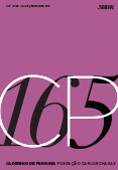The participation of university students in productive and reproductive work
Keywords:
Higher Education, Gender Relationship, La Bour, FamilyAbstract
This paper discusses the links among study, work and family for higher education students based on the results of a broader research carried out at the Universidade Federal de Goiás (BR). Based on a sample of 527 students, this work seeks to characterize them according to their sense of belonging and social positions, their use of time and, also, the participation of men and women in productive and reproductive work. The analysis indicates that although young women make up the majority of the population, the hierarchical structures of gender relations persist and the responsibility for domestic work is still overwhelmingly assumed by women.
Downloads
References
ABRAMO, Helena Wendel. Cenas juvenis: punks e darks no espetáculo urbano. São Paulo, SP: Scritta; Anpocs, 1994.
ARAÚJO, Ângela; LOMBARDI, Maria Rosa. Trabalho informal, gênero e raça no Brasil do início do século XXI. Cadernos de Pesquisa, São Paulo, v. 43, n. 149, p. 452-477, 2013.
ARTES, Amélia Cristina Abreu; CARVALHO, Marília Pinto de. O trabalho como fator determinante da defasagem escolar dos meninos no Brasil: mito ou realidade? Cadernos Pagu, Campinas, n. 34, p. 41-74, 2010.
ÁVILA, Maria Betânia; FERREIRA, Verônica. Trabalho remunerado e trabalho doméstico no cotidiano das mulheres. Recife: SOS Corpo; São Paulo: Instituto Patrícia Galvão, 2014.
BEZERRA, Heloísa Dias et al. Juventude e política: entre a vontade geral e o abandono do Estado. In: BEZERRA, Heloísa Dias; OLIVEIRA, Sandra (Org.). Juventude no século XXI: dilemas e perspectivas. Goiânia, GO: Cânone, 2013. p. 95-132.
BILAC, Elisabete Dória. Trabalho e família: articulações possíveis. Tempo Social, São Paulo, v. 26, n. 1, p. 129-145, 2014.
BRASIL. Instituto Nacional de Estudos e Pesquisas Educacionais “Anísio Teixeira” – Inep. Censo da educação superior 2012: resumo técnico. Brasília, DF: Inep, 2014.
BRUSCHINI, Cristina; RICOLDI, Arlene. Revendo estereótipos: o papel dos homens no trabalho doméstico. Revista Estudos Feministas, Florianópolis, v. 20, n. 1, p. 259-287, 2012.
CARMO, Paulo Sérgio. Juventude no singular e no plural. Cadernos Adenauer, Rio de Janeiro, ano II, n. 6, p. 9-29, 2001.
DUFFY, Mignon. Doing the dirty work: gender, race, and reproductive labor in historical perspective. Gender & Society, Thousand Oaks, v. 21, n. 3, p. 313-336, 2007.
FERES JÚNIOR, João; DAFLON, Verônica. Políticas de igualdade racial no ensino superior. Cadernos do Desenvolvimento Fluminense, Rio de Janeiro, n. 5, p. 31-43, jul. 2014.
FOUGEYROLLAS-SCHWEBEL, Dominique. Trabalho doméstico. In: HIRATA, Helena et al. (Org.). Dicionário crítico do feminismo. São Paulo, SP: Unesp, 2009. p. 256-262.
FRAGA, Paulo Cesar Pontes; IULIANELLI, Jorge Atílio Silva (Org.). Jovens em tempo real. Rio de Janeiro: DP&A, 2003.
GROPPO, Luís Antonio. Juventude: ensaios sobre a sociologia e história das juventudes modernas. Rio de Janeiro: Difel, 2000.
HIRATA, Helena. Gênero, classe e raça: interseccionalidade e consubstancialidade das relações sociais. Tempo Social, São Paulo, v. 26, n. 1, p. 61-73, jun. 2014.
HIRATA, Helena; ZARIFIAN, Philippe. Trabalho. In: HIRATA, Helena et al. (Org.). Dicionário crítico do feminismo. São Paulo, SP: Unesp, 2009. p. 251-256.
INSTITUTO BRASILEIRO DE GEOGRAFIA E ESTATÍSTICA. População jovem no Brasil. Rio de Janeiro: IBGE, 1999. (Estudos e pesquisas. Informação demográfica e socioeconômica, n. 3).
INSTITUTO BRASILEIRO DE GEOGRAFIA E ESTATÍSTICA. Pesquisa nacional por amostra de domicílios: síntese de indicadores 2012. Rio de Janeiro: IBGE, 2013.
INSTITUTO BRASILEIRO DE GEOGRAFIA E ESTATÍSTICA. Pesquisa nacional por amostra de domicílios: síntese de indicadores 2013. 2. ed. Rio de Janeiro: IBGE, 2015.
KERGOAT, Danièle. Divisão sexual do trabalho e relações sociais de sexo. In: HIRATA, Helena et al. (Org.). Dicionário crítico do feminismo. São Paulo, SP: Unesp, 2009. p. 67-75.
KERGOAT, Danièle. Dinâmica e consubstancialidade das relações sociais. Novos estudos Cebrap, n. 86, p. 93-103, mar. 2010.
KUCHEMANN, Berlindes Astrid. Envelhecimento populacional, cuidado e cidadania: velhos dilemas e novos desafios. Sociedade e Estado, Brasília, v. 27, n. 1, p. 165-180, jan./abr. 2012.
LIMA, Márcia; PRATES, Ian. Desigualdades raciais no Brasil: um desafio persistente. In: ARRETCHE, Marta (Org.). Trajetórias das desigualdades: como o Brasil mudou nos últimos cinquenta anos. São Paulo, SP: Editora Unesp; CEM, 2015. p. 163-189.
MANNHEIM, Karl. O problema da juventude na sociedade moderna. In: MANNHEIM, Karl. Diagnóstico de nosso tempo. Rio de Janeiro: Zahar, 1980. p. 47-72.
SENKEVICS, Adriano Souza; CARVALHO, Marília Pinto de. Casa, rua, escola: gênero e escolarização em setores populares urbanos. Cadernos de Pesquisa, São Paulo, v. 45, n. 158, p. 944-968, 2015.
TAVARES, Breitner. Na quebrada, a parceria é mais forte: jovens, vínculos afetivos e reconhecimento na periferia. São Paulo, SP: Annablume, 2012.
WAISELFISZ, Júlio Jacobo. Mapa da violência 2015: adolescentes de 16 e 17 anos do Brasil. Rio de Janeiro: Flacso, 2015.
WELLER, Wivian. A atualidade do conceito de gerações de Karl Mannheim. Sociedade e Estado, Brasília, v. 25, n. 2, p. 204-225, maio/ago. 2010.
WELLER, Wivian. Minha voz é tudo o que tenho: manifestações juvenis em Berlim e São Paulo. Belo Horizonte: Humanitas, 2011.
Downloads
Published
How to Cite
Issue
Section
License
Copyright (c) 2017 Cadernos de Pesquisa

This work is licensed under a Creative Commons Attribution-NonCommercial 4.0 International License.
Authors who publish in this journal agree to the following terms:
a. Authors retain the copyright and grant the journal the right to first publication, with the paper simultaneously licensed under the Creative Commons Attribution license that allows the sharing of the paper with acknowledgment of authorship and initial publication in this journal.
b. Authors are authorized to assume additional contracts separately, for non-exclusive distribution of the version of the paper published in this journal (for example publishing in institutional repository or as a book chapter), with acknowledgment of authorship and initial publication in this journal.
c. Authors are allowed and encouraged to publish and distribute their paper on-line (for example in institutional repositories or on their personal page) at any moment before or during the editorial process, as this can generate productive changes, as well as increase the impact and citation of the published paper (See The Effect of Open Access).









